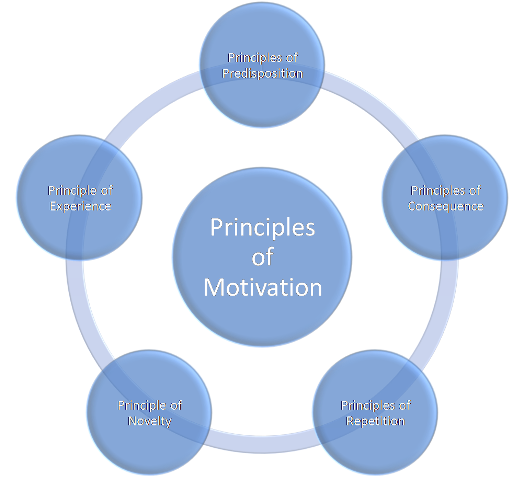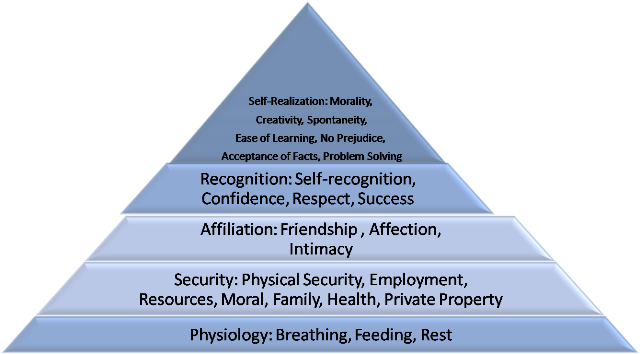
Sourse
A great word, speaks of desire, will, commitment, effort, which makes a person, to achieve their goals, refers to wanting to achieve MORE. It is normal that people always want something: a greater and better internal growth is to develop their self-esteem, self-realization. As well as greater external growth; this refers to everything that surrounds you, your environment. It’s the motivation that gives you the impetus you need, to grow as well as possible.
A motivated person wants to be better in everything that is proposed, and uses tools that help her get there. The motivation is born for the need to want to achieve something.
Definition of Motivation
It can be defined as the will that stimulates a person to make an effort with the purpose of reaching certain goals.
Characteristics of Motivation
• It arises from the need to want to achieve something.
• It is a basic principle of the human being.
• It is dynamic; it varies from one human being to another.
Principles of Motivation
According to some studies on motivation there are five principles

Principle of Predisposition
It refers to how inclined or willing we are to execute a task, if done positively it is pleasant.
Principle of Consequence
In this Principle reference is made as a result of some experience, that is, if we perform some activity and this tube results in a positive consequence, or better than anticipated, we tend to repeat that experience, but if it is negative we reject the strategy.
Principle of Repetition
When on having realized an activity whose result is positive, the fact of repeating the strategy guarantees obtaining positive results.
Principle of Novelty
The unknown is usually more attractive and motivational, than what is already known, and therefore we know what the results are.
Principle of Validity
Refers to the experiences already achieved, and has the motivational that can get to get new experiences.
Theories of Motivation
There are many theories that make references to motivation, but this time we will refer to the theory of Maslow and Mc Clelland
Maslow's Pyramid
According to Maslow, our motivation is born to want to fulfill certain needs, which can be ordered according to their importance. He argued that as basic needs were met man developed higher needs.
Maslow's pyramid is composed by five levels: the first level being the physiological needs, forming the base of the pyramid, second level the security, third level affiliation, fourth level recognition, I feel the self-realization the highest level.
Drawing
Let's talk a little about each one:

Physiological Needs
This formed by the biological needs of the human being, Maslow considered, that without the satisfaction of these needs, the others would be secondary, and they would not be covered until they were not satisfied.
Need for Security
Once the physiological needs are satisfied, the human being wants the satisfaction of the need for security, it is important to feel safe in all areas.
Need for Affiliation
This need arises once the others are covered, and born by the need to overcome the loneliness, and feel that there are emotional links between her and other people.
Need for Recognition
Once the other needs have been met, there is a need for recognition, self-esteem, people feel secure about them and think they are valuable within society.
Need for Self-Realization
It refers to internal needs, spiritual, moral development, the search for a mission in life.
Theory of the three factors of McClelland
According to his theory, the motivation comes from the search to satisfy three basic needs:
Need for Achievement
People set very high goals, to prove themselves, and others who can do everything they set out to do.
Need for Power
People want to be considered, as someone important, with a certain prestige and power.
Need for Affiliation
The human being feels the need to belong to a group, they seek to be popular.
The first theory talks about motivation being based on the fulfillment of five needs, and as these are being covered, others appear of greater importance and relevance, which once satisfied, represents the development of a person. This theory has people in favor as against, but has overcome the passage of time and is still in force today.
The second theory, is based on personal development, speaks of the human being must meet three basic needs, and with it has a greater personal growth.
Type of Motivation
Extrinsic Motivation
It refers to the fact that external factors are what motivate a person to perform certain activity, both positive and negative incentives are external, and people have no control over them.
Intrinsic motivation
It is related to the desires of self-realization and personal growth, it refers to the pleasure a person feels when performing a task. It comes from the inside of the person.
Positive Motivation
It refers to an individual who performs an activity, to obtain a reward, whether internal or external. This positive result has repercussions on the repetition of the behavior that produced it.
Negative Motivation
It refers to a person who performs an activity, in order to avoid an unpleasant reward, both external and internal (punishments, humiliation, avoid feeling of failure ...). That is, when a person does an activity that he does not want to do.
That is all for now…